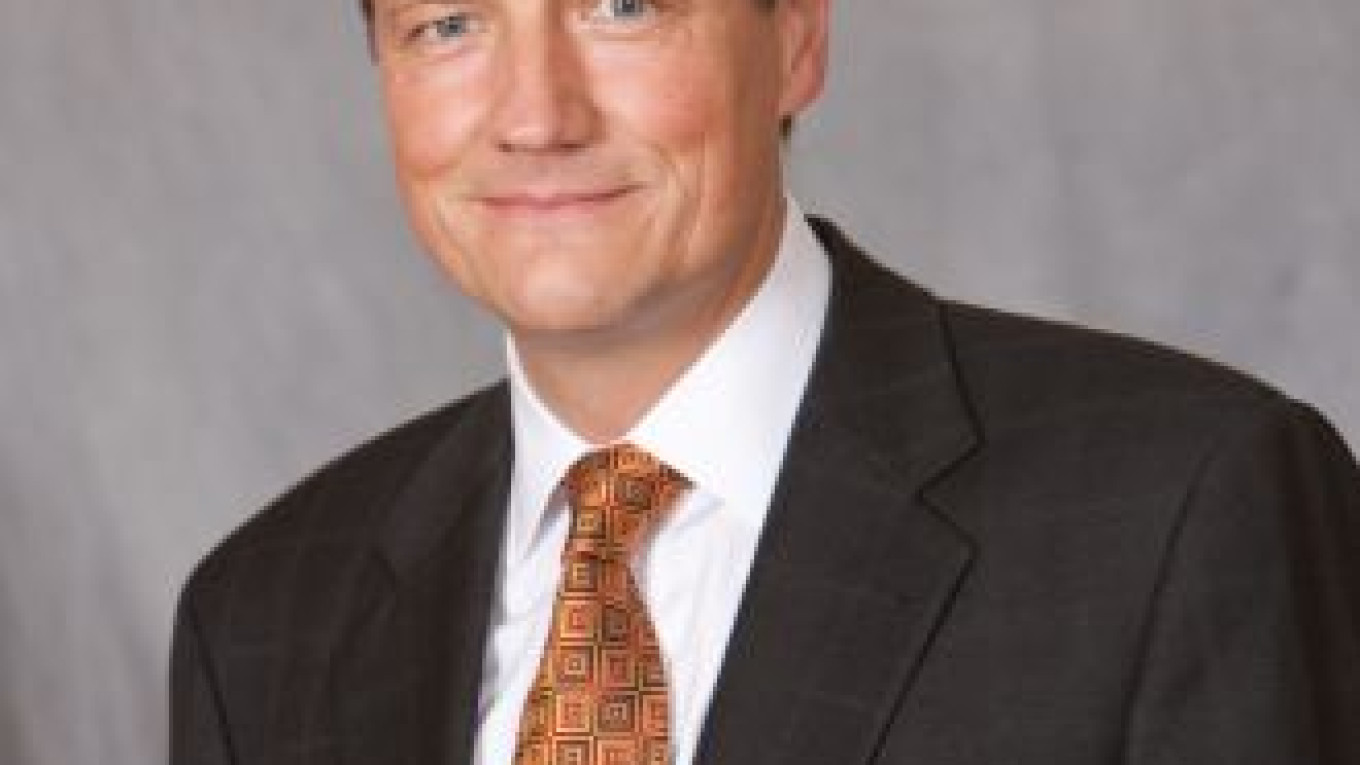Toeing the official line on the state's efforts to localize manufacturing has helped John Deere's agricultural equipment business improve logistics and market share.
But the main prize remains elusive: changing Russian policymakers' minds about what the U.S. company sees as unfair import rules.
Mark von Pentz, president of Deere's agriculture division in the region that includes Russia, recently led a delegation of senior company officials to Russia in an attempt to make the case that Deere was not a threat to local producers of harvesters and tractors.
"That's one of the reasons to be here," he said in an interview, pulling back the wraps on a corporate effort that foreign investors tend to prefer to keep out of public sight.
Von Pentz said import duties on combines rose to a level that was higher than ahead of Russia's entry to the World Trade Organization, which took place in August.
"For us, the situation is more difficult than before, which is kind of interesting," he said.
Deere targets the premium segment with its products and therefore is no competition to Russian companies in the industry, he said. Russian players cater for the customers with tighter budgets, he said.
"There's a market for all of us," said von Pentz, president at Deere's agricultural division for Europe, the Commonwealth of Independent States, Northern Africa, Middle East and Latin America.
The Russia-led customs union had temporarily slapped a prohibitive 27.5 percent import duty on the imports of combines and their components in December as it started an anti-dumping investigation.
Von Pentz spoke on the sidelines of the St. Petersburg International Economic Forum last month. He said John Deere executives attended meetings and receptions during the government-sponsored event in order to raise the issue.
But their attempts to change the perception of combine imports to Russia fell flat.
Just days after the interview, the customs union on June 25 announced that the temporary increase in import duties on combines and their components would stay in place through March 7 of 2016, although it will slide down a bit. It will amount to 26.7 percent this year and will decrease a half percentage point every year.
The Eurasian Economic Commission, the governing body of the customs union, said a sharp increase in combine imports prompted the protective measure.
In addition to imports, Deere sells here equipment that it manufactures at its two production units in Russia, in Domodedovo and Orenburg.
For some other products, such as tractors, the duty went down when Russia joined the WTO, but that is not a reason to wind down local production, von Pentz said.
Local production, which took more than $130 million of investment to set up, helps the company save on logistics costs, von Pentz said. Asked what the savings are, he said only that they were "significant enough" to continue the operation and increase local content.
In Orenburg, the company sources 65 percent of components to local suppliers, he said.
Another reason for the executive to come to Russia was the grand opening of a new manufacturing site in Orenburg — a location that increased the company's capacity there sixfold. Deere invested $30 million in the renovation project.
The product portfolio of Deere's Orenburg facility now includes six models of seeding, tillage and crop care equipment. The company plans to introduce three more crop care models next year and fully equip the site "shortly" to perform such industrial operations as welding and painting, it said in a statement.
"Given a favorable investment climate, Deere plans to continue investing further into the Orenburg facility," the statement said.
Over the next five years, the company may expand manufacturing, implement new technological processes, create a suppliers cluster and build a new training center for dealers and customers.
On top of farming equipment, Deere makes construction and forestry machines in Russia. It has 18 agricultural and six construction and forestry dealers in the country.
It bets on Russia because the country sits over 9 percent of the world's arable land, which exceeds that of the 27 European Union members together.
Contact the author at medetsky@imedia.ru
A Message from The Moscow Times:
Dear readers,
We are facing unprecedented challenges. Russia's Prosecutor General's Office has designated The Moscow Times as an "undesirable" organization, criminalizing our work and putting our staff at risk of prosecution. This follows our earlier unjust labeling as a "foreign agent."
These actions are direct attempts to silence independent journalism in Russia. The authorities claim our work "discredits the decisions of the Russian leadership." We see things differently: we strive to provide accurate, unbiased reporting on Russia.
We, the journalists of The Moscow Times, refuse to be silenced. But to continue our work, we need your help.
Your support, no matter how small, makes a world of difference. If you can, please support us monthly starting from just $2. It's quick to set up, and every contribution makes a significant impact.
By supporting The Moscow Times, you're defending open, independent journalism in the face of repression. Thank you for standing with us.
Remind me later.


